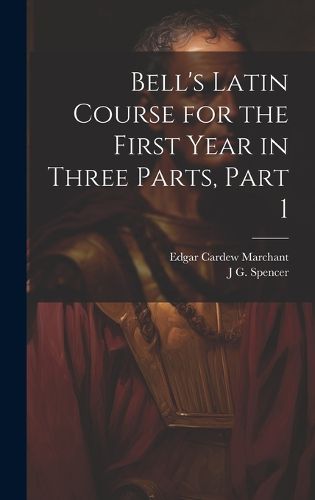Readings Newsletter
Become a Readings Member to make your shopping experience even easier.
Sign in or sign up for free!
You’re not far away from qualifying for FREE standard shipping within Australia
You’ve qualified for FREE standard shipping within Australia
The cart is loading…






This classic Latin textbook, authored by Edgar Cardew Marchant and J.G. Spencer, provides a comprehensive introduction to the language of ancient Rome. Bell's Latin Course for the First Year is designed to introduce students to the fundamentals of Latin grammar and vocabulary, with clear and concise explanations and exercises. Perfect for both classroom use and self-study, this volume is an essential addition to any classicist's library.
This work has been selected by scholars as being culturally important, and is part of the knowledge base of civilization as we know it.
This work is in the "public domain in the United States of America, and possibly other nations. Within the United States, you may freely copy and distribute this work, as no entity (individual or corporate) has a copyright on the body of the work.
Scholars believe, and we concur, that this work is important enough to be preserved, reproduced, and made generally available to the public. We appreciate your support of the preservation process, and thank you for being an important part of keeping this knowledge alive and relevant.
$9.00 standard shipping within Australia
FREE standard shipping within Australia for orders over $100.00
Express & International shipping calculated at checkout
This classic Latin textbook, authored by Edgar Cardew Marchant and J.G. Spencer, provides a comprehensive introduction to the language of ancient Rome. Bell's Latin Course for the First Year is designed to introduce students to the fundamentals of Latin grammar and vocabulary, with clear and concise explanations and exercises. Perfect for both classroom use and self-study, this volume is an essential addition to any classicist's library.
This work has been selected by scholars as being culturally important, and is part of the knowledge base of civilization as we know it.
This work is in the "public domain in the United States of America, and possibly other nations. Within the United States, you may freely copy and distribute this work, as no entity (individual or corporate) has a copyright on the body of the work.
Scholars believe, and we concur, that this work is important enough to be preserved, reproduced, and made generally available to the public. We appreciate your support of the preservation process, and thank you for being an important part of keeping this knowledge alive and relevant.